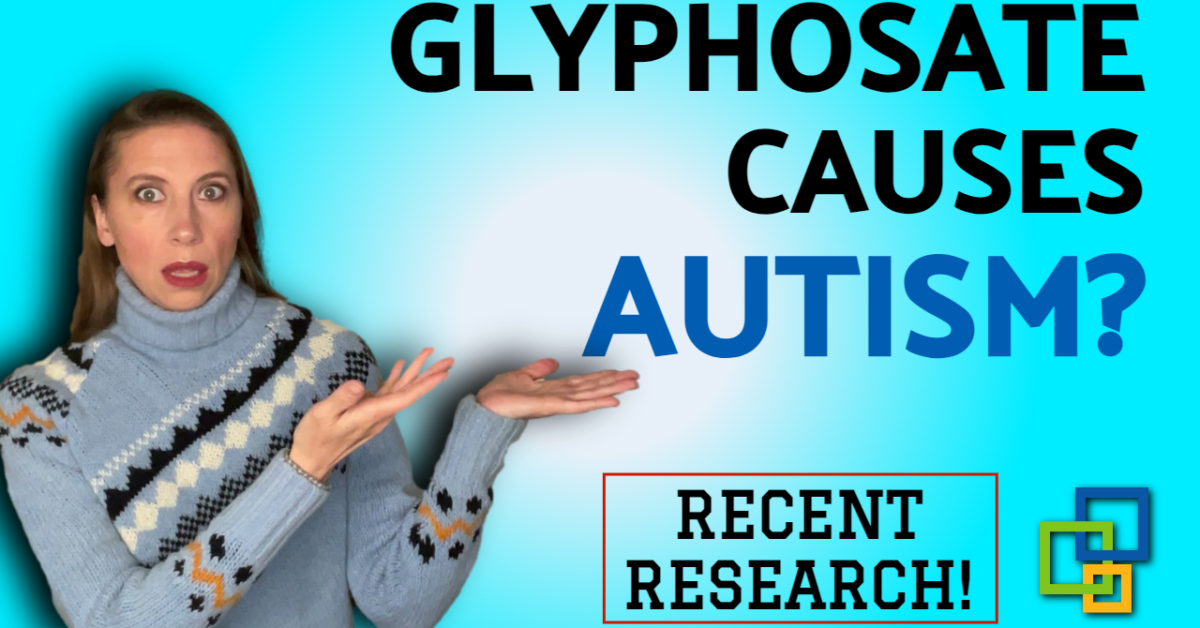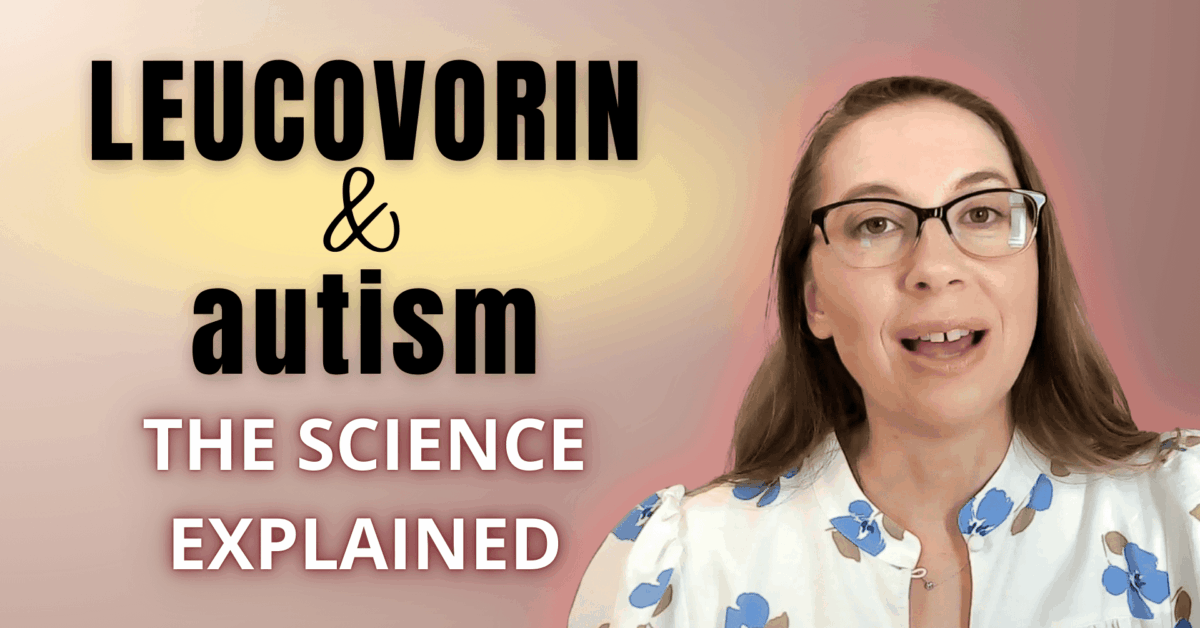What is the cause of autism?
It’s a question a lot of people ask – what is the real actual initial trigger. There’s a lot of debate about that. And a really great research paper came out in 2020 that studied the effect of glyphosate on the offspring of mice who were exposed to glyphosate. The offspring developed autism-like behaviors. Researchers also figured out how to prevent this from happening in mice.
Alright, let’s learn some science.
Glyphosate exposure and autism
In 2021, the CDC estimates that one in 44 children aged eight in the US have autism and autism rates have been rising in the US since the 1980s. The reason is still unknown.
In addition to genetic factors, there is accumulating scientific evidence that supports a significant contribution of environmental factors in autism. This is something that’s really important. It’s not one or the other. Genetic and environmental factors. They BOTH play a role in autism.
Glyphosate is the active ingredient in Roundup, I’m sure you’ve probably heard of Roundup and also other herbicides and it is the most widely used herbicide in the world. Glyphosate is a billion-dollar product and very Interestingly there is a positive correlation between the rise of glyphosate usage on corn and soy crops in the US over the years of 1995 to 2010 and the increase in autism rates over the same time. So there is this correlation. We’ve been using glyphosate more and more and we’re seeing autism more and more. That’s not causation. It’s a correlation.
Fatty acids
There are specific fatty acids that are powerful anti-inflammatory molecules. These fats are metabolized rapidly into corresponding diols. It’s just a metabolite of the initial fat molecule and the enzyme that does this is soluble epoxide hydrolase (sEH).
When you inhibit the soluble epoxide hydrolase that then enhances the beneficial effects of the fatty acids. So you’re trying to inhibit this metabolism of the initial fats into the corresponding dials, then the beneficial effects of the fatty acids increase.
Again, this is just flow-state, right?
You have a fat, it gets metabolized into something else that is not as beneficial as the initial fat.
Let’s look at some previous research. In 2019, researchers showed that enzyme sEH in the prefrontal cortex plays a key role in the development of autism in mice from mothers who had maternal immune activation.
And there’s no previous research about the role of this enzyme in the pathogenesis of autism in offspring after maternal exposure to glyphosate. So this is what the research article was really focusing on.
The Research
All the research that I’m talking about here is done in animal models. The research was done with mice. The levels of glyphosate exposure were significantly higher than humans are typically exposed to. The scientists did this on purpose. They really wanted to see what effect, if any, was going to be observed. So the levels of glyphosate exposure were much, much higher than humans are typically exposed to.
What happened when pregnant mice, in this research were exposed to glyphosate. You might be wondering, that is a great question.
And here’s a quote from the research article itself.
It says
“Maternal glyphosate exposure during pregnancy and lactation caused ASD-like behavioral abnormalities, and abnormal composition of gut microbiota in murine male offspring.”
So the pregnant mice were exposed to glyphosate, and there were abnormalities in the offspring in the brain as well as the gut.
Another question is, did glyphosate exposure alter brain function? Here’s a quote from the research article.
It says
“Soluble epoxide hydrolase in the brain of offspring after maternal glyphosate exposure was higher than controls.”
So yes, there were changes in the brain of the offspring.
Can the changes in the brain be stopped? Another good question.
“Treatment with a soluble epoxide hydrolyse inhibitor from pregnancy to weaning prevented the onset of autism-like behavioral abnormalities in offspring after maternal glyphosate exposure.”
So the pregnant mice were exposed to the glyphosate. Then there was given a treatment that inhibits the soluble epoxide hydrolase and the behavioral abnormalities. What is typically associated with autism was prevented. Very interesting. I have to say, extremely interesting.
Conclusion
Here are the conclusions. This is again, a quote directly from the research article:
“In conclusion, this study suggests that maternal exposure to high levels of formulated glyphosate may play a role in the ideology of autism-like behaviors in murine offspring through increased activity of sEH in the brain, and sEH inhibitors can be a useful tool to dissect the mechanism.”
Another conclusion is that the gut and the brain are connected and both are important in regaining health.
So I understand this research article might come a little bit as a disappointment, right? Because you probably have your child already. So it’s a little bit after the fact. It’s great to know that Oh Okay, this might have some type of correlation for the reason why autism levels are so much higher nowadays.
And then you might be wondering, alright, well, what can I do now? 8 years after my child has been born, 10 years, 15 years, 20 years, and gut health and brain health can be regained. It certainly takes focus, certainly takes effort, but health really can be regained.
So hopefully this research article at least shows you that things can change.
And here are some references:
- Crit. Rev. Toxicol. 43, 283–315 (2013).
- Interdiscip. Toxicol. 6, 159–184 (2013).
- J. Org. Syst. 9, 6–37 (2014).
- Surg. Neurol. Int. 6, 45 (2015).
- Proc. Natl. Acad. Sci. U.S.A. 116, 7083–7088 (2019).




